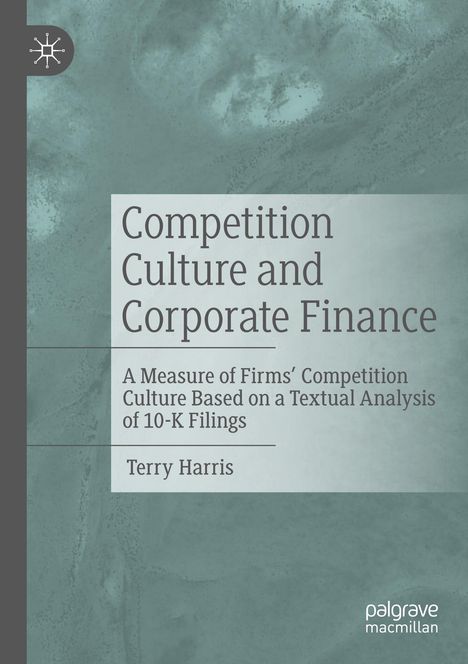Terry Harris: Competition Culture and Corporate Finance, Kartoniert / Broschiert
Competition Culture and Corporate Finance
Buch
- A Measure of Firms' Competition Culture Based on a Textual Analysis of 10-K Filings
lieferbar innerhalb 2-3 Wochen
(soweit verfügbar beim Lieferanten)
(soweit verfügbar beim Lieferanten)
Aktueller Preis: EUR 159,30
- Verlag:
- Springer International Publishing, 04/2024
- Einband:
- Kartoniert / Broschiert, Paperback
- Sprache:
- Englisch
- ISBN-13:
- 9783031301582
- Artikelnummer:
- 11854784
- Umfang:
- 268 Seiten
- Nummer der Auflage:
- 2023
- Ausgabe:
- 2023
- Gewicht:
- 351 g
- Maße:
- 210 x 148 mm
- Stärke:
- 15 mm
- Erscheinungstermin:
- 26.4.2024
- Hinweis
-
Achtung: Artikel ist nicht in deutscher Sprache!
Weitere Ausgaben von Competition Culture and Corporate Finance |
Preis |
|---|
Klappentext
This book introduces a measure of firms competition culture based on a textual analysis and natural language processing (NPL) of firms 10-K filings. Using this measure, the book explores the relationship between competition culture and various phenomena in corporate finance, specifically, institutional ownership structure, stock return performance, idiosyncratic stock price crash risk, meeting / beating analysts earnings expectations, and earnings management activity, for a large sample of US-based financial and non-financial firms. In particular, the book provides evidence that transient institutional ownership intensifies firms competition culture, while dedicated institutional ownership lessens it. In addition, the book s findings suggest that firms with greater levels of competition culture achieve higher levels of short-term stock return performance, experience greater incidence of idiosyncratic stock price crashes, and are more prone to meet / beat analysts forecast and engagein accruals-based earnings manipulation.Finally, the book examines the role played by competition culture in financial firms (i. e., banks). Specifically, the book explores the effect of competition culture on bank lending and shows that banks with greater levels of competition culture are generally more prone to engage in procyclical lending activity. The findings of the book have significant policy implications and will be of interests to regulators, accounting standard-setters, managers and those charged with firm governance, career academics and researchers, graduates, and those generally interested in the role played by corporate culture in the related fields of finance, economics, and accounting.

Terry Harris
Competition Culture and Corporate Finance
Aktueller Preis: EUR 159,30
